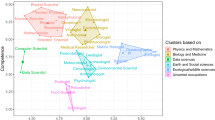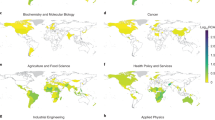Abstract
IN reviews and articles that have appeared over the name of Prof. Dingle in NATURE, a particular philosophical point of view has been presented as if it were one to which scientific men must necessarily subscribe. In his review of Eddington's “New Pathways in Science” in NATURE of March 23, p. 451, for example, it is again explicitly stated, and although I am at one with him in many of his criticisms of that book, I am certain I speak not for myself alone when I dissent strongly from Dingle's philosophical outlook on science. “We start with experience,” he says, “pick out those elements which are common to all observers, represent them by concepts defined in such a way thatthey relate together as many as possible of the common experiences, and the resulting logical network is the external world“.
This is a preview of subscription content, access via your institution
Access options
Subscribe to this journal
Receive 51 print issues and online access
$199.00 per year
only $3.90 per issue
Buy this article
- Purchase on SpringerLink
- Instant access to full article PDF
Prices may be subject to local taxes which are calculated during checkout
Similar content being viewed by others
Author information
Authors and Affiliations
Rights and permissions
About this article
Cite this article
LEVY, H. Philosophical Interpretation of Science. Nature 135, 624 (1935). https://doi.org/10.1038/135624a0
Issue date:
DOI: https://doi.org/10.1038/135624a0



